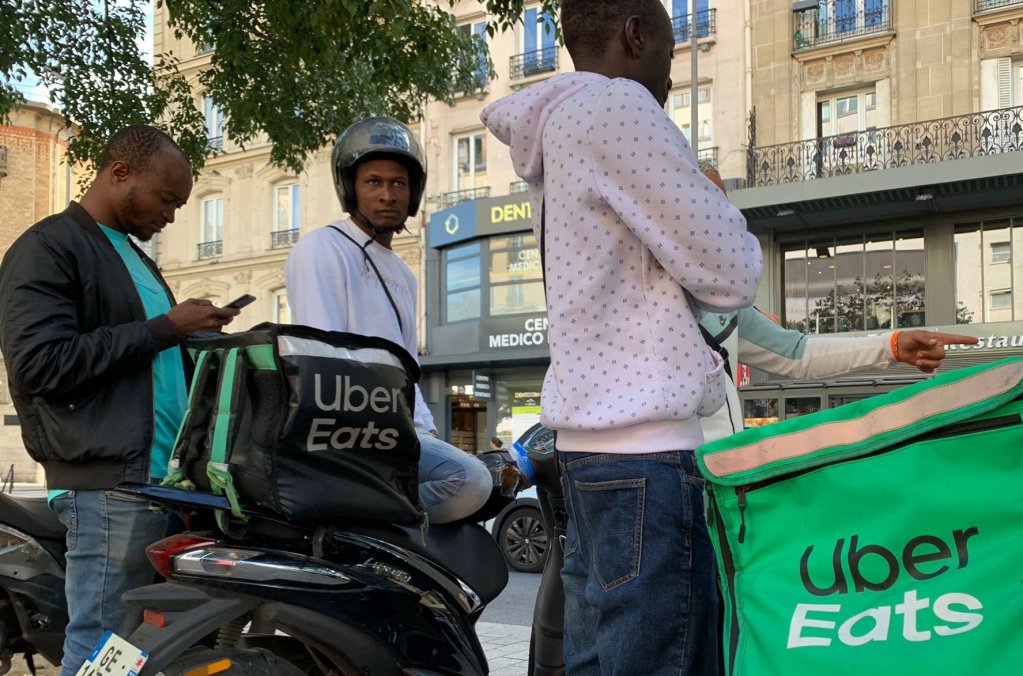Germany is about to introduce a new law to clamp down on illegal employment practices. The law will require employees of hair salons, barbershops and nail salons to always carry their legal ID papers on them at work, to try and prevent migrants and others from being employed illegally.
According to the draft law, employees of hair salons, barbershops and nail studios, many of whom tend to be migrants, will in future have to carry their ID cards or similar identification documents with them at their place of employment to facilitate spot identity checks.
The wording of the law has already been presented by German Finance Minister Lars Klingbeil to the Bundestag, Germany's lower house of parliament, earlier.
Klingbeil, who is also Germany's vice chancellor, said that ensuring legal work practices was "a question of justice."
The new law is expected to be passed without greater scrutiny.
5,000-euro fines for non-compliance
The beauty industry is increasingly finding itself in the crosshairs of authorities, as it is considered to be particularly susceptible to illegal employment practices, such as the hiring of people who don't have a work permit in Germany.
The new law stipulated that if employees fail to produce identification documents during checks, they could face a fine of up to 5,000 euros.
Other such sectors with a known increased risk of illegal employment practices in Germany include the construction sector, private transport and the meat industry, where such checks already are customary per law.
Employers expected to help authorities
The introduction of the law will also have some consequences for employers in the beauty sector, chiefly administrative ones: Employers will be required to report all employment-related details to Germany's pension insurance fund — at latest on the date when an employee starts at a new workplace.
The pension insurance fund serves as a register of legal employment — much like social security or national insurance in other countries.
Failure to comply will also result in a similar fine for employers, according to the draft law.

This follows an investigation by a special unit of Germany's customs authorities known as "Financial Control of Undeclared Employment" (FKS), which found that the beauty industry is "particularly prone" to undeclared work and illegal employment practices.
It said that without making it obligatory to carry personal identification, "the identification of persons encountered during inspections is often very time-consuming."
The FKS added that during prior inspections it was sufficient to only produce pictures of such personal documents on cell phones, which could easily be forged.
Read AlsoEU clash between worker shortages, anti-immigrant politics
Money laundering and criminal gangs
The Finance Ministry meanwhile also stressed that there were increased reports of beauty salons and barbershops being used for money laundering purposes, and that some of these businesses were are also known to harbor criminal clans.
It added that exploitative employment practices had also been identified in some cases, and that these industries were more likely to operate outside the stipulations of various employment laws.
The ministry further highlighted that minimum wage practices and overtime pay were known to frequently be overlooked.

Germany continues to suffer major shortages in the labor market and needs an average of at least 300,000 additional skilled workers per year, say the authorities.
The government continues to expand and liberalize visas for sought-after professionals, not only to keep up with demand but also to ensure the longterm sustainability of Germany's social welfare system; however, only few migrants who come to Germany to lodge asylum requests bring those specific skills with them.
Officials meanwhile say that in contrast, illegally employed migrants in unskilled jobs proactively cause harm to the economy as they don't pay taxes.
Read AlsoWithout immigration, Germany’s labor market would collapse within decades: study
Beauty industry 'outraged' by new law
The association of nail design professionals in Germany (VNDD) criticized the government's plans earlier, saying it would make it more difficult to conduct business.
"We already have enough bureaucracy in Germany, which is an extreme burden, especially for small businesses such as nail studios," the association's managing director Terri Malon told the newspaper group Redaktionsnetzwerk Deutschland (RND).
"The fact that the federal government is adding to this and placing an entire industry under general suspicion is outrageous."
The FSK said, however, that it plans to move checks to digital platforms in the future, hoping that this will mean less admin for both employers and authorities.
The growing problem of illegal work across Europe
Germany's lawmakers appear to be following the example of the United Kingdom, where the government is also clamping down on illegal employment.
Recently, UK authorities reached an agreement with food delivery companies to check on the status of people couriering meals for them.
Certain asylum seekers in the UK, who do not have the right to work while their applications are being assessed, found loopholes to work for these firms by "renting" accounts from other people with legal papers.
The major food delivery companies in the UK, including Deliveroo, Uber Eats, and Just Eat pledged to enforce further checks and to introduce facial recognition technology to ensure that those working for them are indeed the people they claim to be.
The same problem with food delivery couriers surfaced a few years ago in France, when over 2,500 accounts were suddenly blocked on allegations of fraudulent work papers.

Read AlsoUK food delivery firms pledge tighter employment checks
